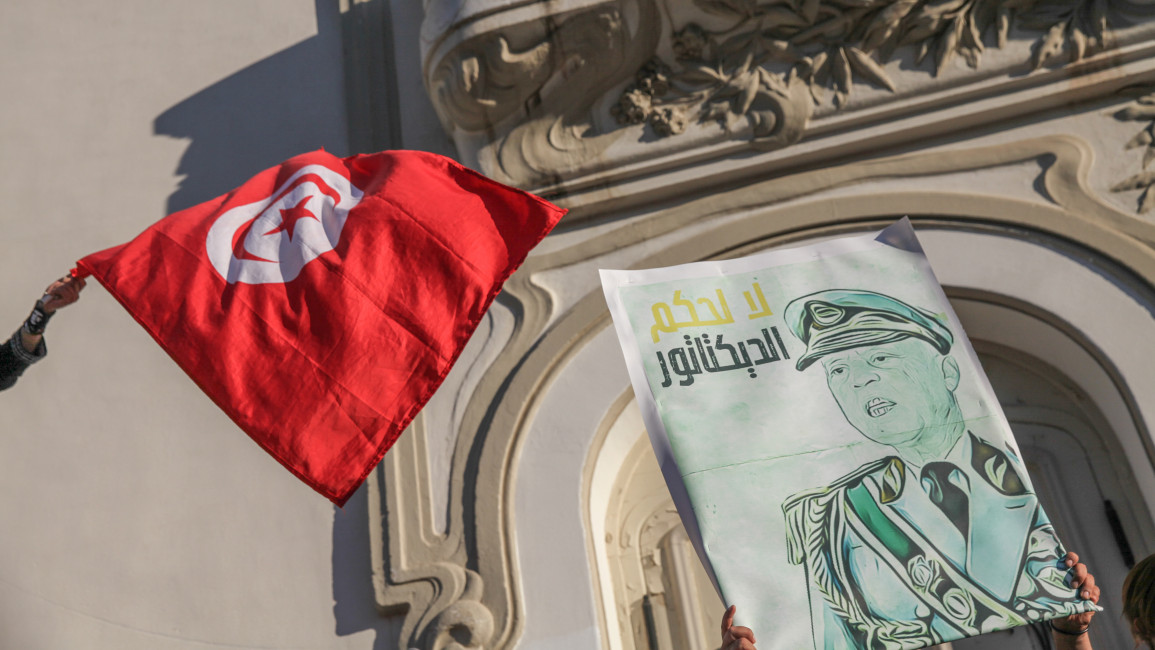Tunisia's election body rejects monitoring groups due to 'suspicious foreign funds'
In Tunisia, the Independent High Authority for Elections (ISIE) has denied several civil society groups' requests to monitor the 6 October presidential elections, citing foreign funds from a "suspicious origin."
In a press statement on Monday, 9 September, ISIE said it had received information from official bodies that some of these groups received "suspicious foreign funding" from countries that do not have diplomatic relations with Tunisia.
ISIE added that this information had been referred to the relevant authorities for further action.
Although the ISIE did not explicitly name the groups, one of its commission members stated last weekend that formal allegations had been sent to Tunisia's public prosecutor against two specific groups: I-Watch and Mourakiboun (meaning "Observers" in Arabic). These allegations claim that the groups received funding from abroad.
On 6 September, Mourakiboun, a local association, announced that the ISIE had "not responded to its request to accredit 1,220 of its observers for the presidential elections."
Meanwhile, I-Watch has dismissed the statements as a "flimsy pretext" to exclude election monitors from observing the presidential vote.
Does President Saied influnce the ISIE's decisions?
Since the 2011 Tunisian revolution, which toppled the previous 23-year-long Ben Ali regime, ISIE has supervised various legislative, presidential, and municipal elections in the country.
However, the body, established to prevent a return to authoritarianism like that of former President Ben Ali, has faced criticism for allegedly enabling a new one.
The ISIE has come under severe criticism after President Kais Saied issued a presidential order in April 2022, granting him the power to appoint its head.
Analysts warn that the ISIE has lost its independence and now serves Saied's interests, especially after it refused to accept the Administrative Court's decision to reinstate three candidates previously disqualified from the presidential race.
The ISIE had earlier disqualified 14 prospective candidates, including serious challengers to Saied, for various reasons.
"We have a few elements that suggest this direction", Hatem Nafti, a Tunisian political essayist, told The New Arab.
"It seems inconceivable that it acted in this way without the president's green light," Nafti added.
Earlier this month, ISIE confirmed President Kais Saied and two former parliament members, Zouhair Maghzaoui and Ayachi Zammel, as the sole presidential candidates—the same list it initially released in August.
Three of the rejected candidates won appeals against the electoral commission before Tunisia's Administrative Court: Abdellatif Mekki, a former health minister; Mondher Zenaidi, a former minister under Ben Ali; and Imed Daimi, a former MP.
Decisions of the Administrative Court, which has exclusive jurisdiction over electoral candidacy disputes, are legally binding.
Yet, Farouk Bouasker, the ISIE's president, said on 2 September that the commission was "unable to enforce" the court rulings, and the list of presidential candidates "is final and not subject to appeal."
Kais Saied: 'a new Gaddafi in Tunisia'
Last week, Tunisian authorities re-arrested presidential candidate Ayachi Zammel hours after his release from pretrial detention on suspicion of manipulating ballot signatures.
If found guilty, Zammel will be disqualified from the 6 October race, leaving President Saied with only one opponent.
Human Rights Watch (HRW) stated that holding elections amid such repression makes a mockery of Tunisians' right to participate in free and fair elections.
Since Saied took extraordinary powers in 2021 and later rewrote the constitution to grant himself even more power, international and local rights groups have warned of the shrinking freedom of speech and opinion in the country.
In May, Pan-African Magazine Jeune Afrique likened Saied's politics to those of late Libyan President Muammar Gaddafi. The magazine's recent printed cover story on President Saied has reportedly been banned in the North African country.
For Hatem Nafti, author of "Tunisia: Towards Authoritarian Populism?", President Saied's crackdown on opponents, NGOs, and anyone critical of his rule reflects his lack of confidence regarding his chances in the upcoming election.
"He will not accept the election results if he loses and has already made this clear", Nafti said, referring to Saied's previous promise not to hand the country to the "untrustworthy."
"Saied views himself as having a nearly divine mission. Opposing him is seen as blasphemy," he added.




 Follow the Middle East's top stories in English at The New Arab on Google News
Follow the Middle East's top stories in English at The New Arab on Google News
![A group of Palestinians, foreign and Israeli activists gather to participated in an olive picking event on the land in the town of Battir, which is under threat of confiscation by Israel in Bethlehem, occupied West Bank on 8 November 2024. [Getty]](/sites/default/files/styles/image_330x185/public/2182930803.jpeg?h=199d8c1f&itok=__0LgGsa)

![People gathered around the rubble of destroyed houses to search for survivors [Getty]](/sites/default/files/styles/image_330x185/public/2024-11/GettyImages-2184733820.jpg?h=199d8c1f&itok=NiM1LO2f)